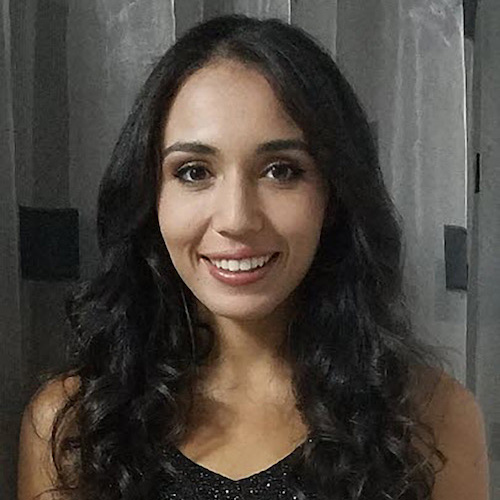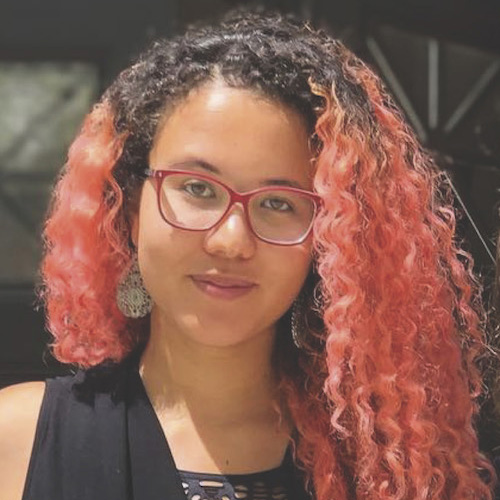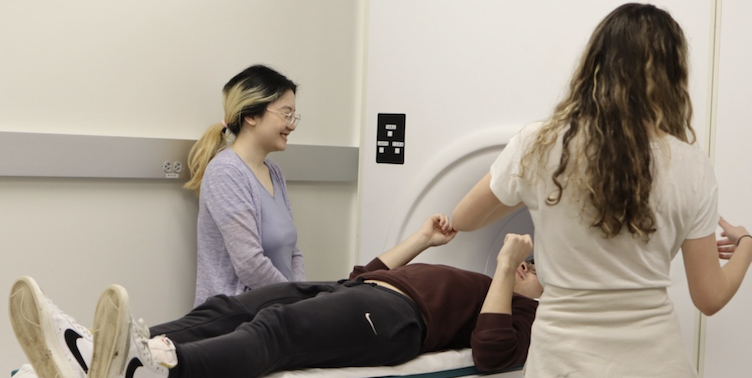Carney scientists win NIH D-SPAN Awards
Three scientists affiliated with Brown University’s Carney Institute for Brain Science have received awards from the National Institutes of Health to support the completion of their doctoral dissertations and to facilitate the transition from graduate school to postdoctoral research positions.
Anusha Allawala, a Ph.D. candidate in biomedical engineering, Sinda Fekir, a Ph.D. candidate in the Neuroscience Graduate Program, and Kathryn Graves, a 2015 Brown graduate, are among a cohort of graduate students nationwide who received the 2021 Diversity Specialized Predoctoral to Postdoctoral Advancement in Neuroscience (D-SPAN) Awards. The awards support outstanding graduate students who are from diverse backgrounds. In addition to receiving financial support, awardees also have access to career development opportunities relevant to their goal of becoming independent neuroscience researchers.
Cognitive control in depression

When Anusha Allawala found out she had been selected to receive the D-SPAN award, she said she felt incredibly grateful for the opportunity to keep asking important research questions that are significant for her.
“It's a wonderful validation of my efforts and research interests at the intersection of engineering and neuropsychiatry, and it provides a great pathway for me to pursue my research interests in academia,” Allawala said.
Allawala’s dissertation research is centered on characterizing the neural dynamics associated with cognitive control in treatment-resistant depression, and the effect of deep brain stimulation on cognitive control networks. She works in the lab of David Borton, an associate professor of engineering.
“For my dissertation, I am leveraging intracranial recordings and behavioral tasks as part of a multi-institute clinical trial and collaboration with Baylor College of Medicine and University of Texas, Southwestern,” she said.
Allawala is co-advised by Borton and Dr. Sameer Sheth of Baylor College of Medicine. Her long-term career goals are to use tools for neural circuit dissection to better understand and optimize neuromodulation in neuropsychiatric disorders.
Allawala received a bachelor’s degree in biomedical engineering from San Jose State University, where she was a McNair scholar. Prior to graduate school, Allawala worked as a research associate on clinical applications of optogenetics at a neuroscience startup, Circuit Therapeutics. Following this research experience, she was awarded the NSF Graduate Research Fellowship.
Forebrain dynamics and behavior

Sinda Fekir was sitting at her kitchen table when she received an email stating that she had been selected to receive a D-SPAN award. Fekir said she felt ecstatic and immediately called her thesis advisor Christopher Moore, the associate director of the Carney Institute.
“This award means a lot to me,” Fekir said. “It's evidence that I have some potential to achieve my dream of becoming a professor and doing academic research. This funding will give me more freedom regarding where I can go for my postdoctoral work, as well as access to a network of D-SPAN peers and mentors.”
Fekir works in the Moore Lab on forebrain dynamics and behavior. She uses a myriad of optical and imaging techniques—including optogenetic manipulation of cell behavior and calcium imaging, in conjunction with behavioral training—to specifically investigate interactions between ventral tegmental area cells and forebrain vasculature.
Prior to joining the Moore Lab, Fekir received a bachelor’s degree in neuroscience and psychology from Christopher Newport University, where she used electron microscopy to identify the location of noradrenergic receptors in the brain’s ventral periaqueductal gray area involved in arousal.
The discovery of these noradrenergic receptors on glial cells piqued Fekir’s curiosity about the contribution of non-neural cell types to information processing and behavior. This curiosity inspired her to study brain vasculature and consider the impact of body signals on the brain and behavior.
Fekir said she has developed a fascination and love for imaging with hopes of establishing her own laboratory where she will investigate the impact of body signals on information processing in the brain and behavior by using and innovating on state-of-the-art imaging techniques.
Neural mechanisms of learning

Kathryn Graves was in the middle of a Zoom retreat when she received an email from the D-SPAN program officer. As soon as she saw the word “congratulations,” she said she turned off the camera on her computer because she genuinely could not stop smiling.
“This award eliminates a potential barrier to mentorship in the next stage of my academic career, and it gives me flexibility to seek out the best possible postdoctoral advising fit,” said Graves, who received a bachelor’s degree in psychology from Brown.
While at Brown, Graves worked on human sequence learning with David Badre, a professor of cognitive, linguistic and psychological sciences. She earned a Karen T. Romer Undergraduate Teaching and Research Award (UTRA) to conduct her research in the Badre Lab.
Following graduation, Graves worked as a research assistant at the University of Pennsylvania. She is now a psychology Ph.D. candidate at Yale University, where she studies the neural mechanisms by which people learn and extract structure from their environments. Graves uses behavioral studies, computational models and intracranial EEG in epilepsy patients, including cutting-edge brain implants that can record neural activity from humans during real-world navigation. Her work has received support from the Society for Neuroscience and the Yale Center for Clinical Investigation. Graves was also recognized with a Dean’s Emerging Scholars Fellowship from Yale.
“My graduate research program thus far has been ambitious, relying on novel methods and rare populations,” Graves said. “By receiving the D-SPAN award, I feel empowered to pursue equally ambitious projects in my postdoctoral phase.”
Beyond the lab, Graves serves as co-chair of her department’s Diversity Committee and a fellow in Yale’s Office of Graduate Student Development and Diversity, organizing mentorship programming and workshops with international reach for which she was bestowed a Jane Olejarczyk Service Award.



